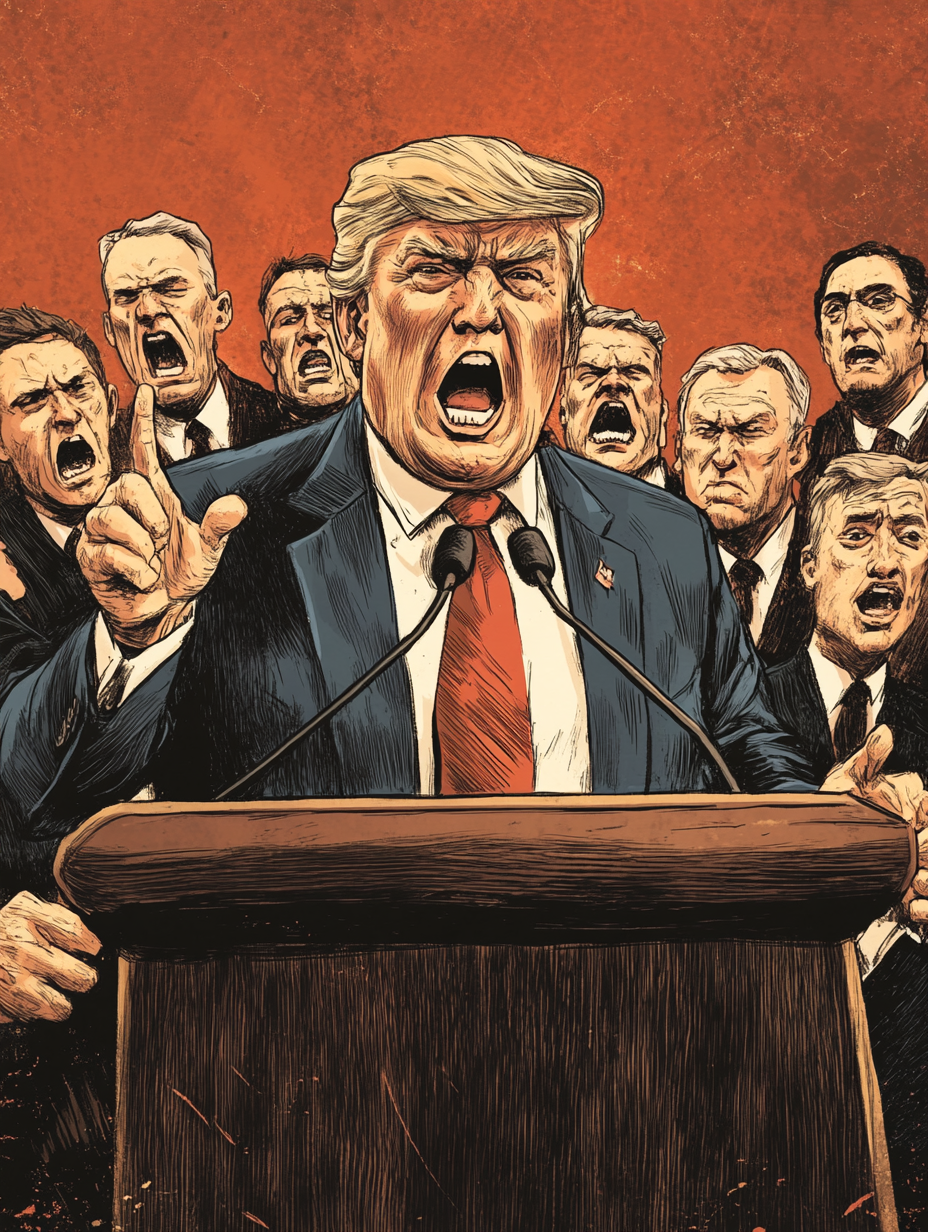Navigating the Political Conundrum:
A Deep Dive into the Bipartisan Divide in the United States
In the dynamic landscape of U.S. politics, we find ourselves entangled in an enduring conundrum. The fierce, politically charged opposition between the two major parties, Republicans and Democrats, each fervently claiming the mantle of being the true representatives of the American people, is both a reflection of our vibrant democratic traditions and the root of many present-day challenges. How has this divided political climate emerged, and what does it mean for the present and future of American democracy?
The United States, much like other democratically aligned nations, prides itself on an inherited right that subjects anyone within its borders to the laws governing the land. This principle is grounded in our Constitution and the 14th Amendment, which ensures that all persons, with very few exceptions like diplomatic immunity, have these rights as soon as they set foot into U.S. territory.
This essential tenet upholds the principle that all individuals, regardless of their legal status, are entitled to express their side of the story when accused and are subject to the same legal framework that governs American citizens. In doing so, the Constitution endeavors to create a harmonious society where justice and liberty are accessible to all.
However, this principle is increasingly contested by those who argue that “illegals” should not share these rights. Such claims are inconsistent with the explicit wording of the 14th Amendment, which ensures that all individuals within U.S. borders are afforded equal protection under the law. It’s imperative that this interpretation remains consistent, for it allows the U.S. legal system to address any infractions with fairness, regardless of citizenship status.
There exists a critical distinction between what is deemed ‘legal’ and ‘illegal’ in terms of inherited U.S. rights. One remarkable application of the 14th Amendment is the right it affords to children born to legal or illegal immigrant workers within the U.S. Such children are automatically bestowed U.S. citizenship, a testament to the inclusive spirit of our Constitution.
Understanding these nuances is vital, for they form the bedrock of American legal and societal frameworks. Misinterpretation or manipulation of these principles undermines the balance and harmony necessary for our democracy to flourish.
In today’s politically charged environment, the masses are often the unwitting recipients of one-sided narratives. Misinformation, disseminated by politically aligned individuals or entities, can cloud our judgment and skew our understanding of legal realities. By unquestioningly echoing these statements, we risk distorting our democratic ideals.
Our inherent tendency as humans to gravitate towards voices that resonate with what we perceive as ‘better’ or more aligned with our beliefs underscores a psychological conundrum. It becomes increasingly challenging to delineate fact from fiction, especially once we have anchored our identities to a specific viewpoint.
This creates a precarious situation, wherein we might become pawns in a broader, one-sided argument. This not only sows discord but also chips away at the civil decorum and ethical principles upon which democratic living depends.
Two brilliant minds have predicted these historical parallels and present-day implications: The French psychologist, Auguste Comte (1798 – 1857), framed it perfectly. His vision of a socially harmonized order through scientific principles, while noble, was often criticized for potentially stifling individual liberties – an apt critique as we face a tide of conformity driven by misinformation. Meanwhile, UC University Professor E.C. Tolman (1886 – 1959) taught us the importance of standing firm against suppressive attempts, reminding us of the cost of silence. He opposed McCarthy-era loyalty oaths, valuing freedom over coercion.
The current fracture in U.S. politics echoes dangerously with pre-World War II rhetoric, which ultimately propelled Europe into a catastrophic conflict. The anti-Semitic sentiments that fueled hatred then mirror the vitriolic, divisive rhetoric observed today. Such parallels are not merely historical footnotes; they are warnings from the past about the dire consequences of unchecked division and misinformation.
The inaction of the media and leadership in curbing the spread of misinformation has brought us to a precarious tipping point. The parallels with past global conflicts remind us of the potential repercussions of failing to address these issues decisively and collectively.
The cycle of politically fueled animosity persists not only because of active voices but also because many stand silently on the sidelines. This inaction is reminiscent of the 1930s, when many believed, “It has nothing to do with me.” This attitude, where one assumes immunity because they are not directly targeted, is not only passive but perilous.
By choosing silence, we inadvertently endorse a system that erodes democratic norms and compromises societal harmony. The psychology of indifference or passivity can be as damaging as active hostility, enabling the spread of divisive, harmful ideologies.
The dilemma facing the United States today is not just a political squabble; it’s a pivotal moment in the story of its democracy. By examining the roots of the bipartisan divide, acknowledging misinterpretations of Constitutional rights, combating misinformation, and reflecting on historical parallels, we can foster a more informed, engaged citizenry.
As participants in this grand democratic experiment, we must not only voice our opinions but also listen, understand, and act in ways that uphold the principles of justice, equality, and freedom. It’s imperative to embrace a holistic view that encourages dialogue, understanding, and respect across both sides of the political aisle. By doing so, we contribute to a robust, resilient democracy, protecting the rights and freedoms that define the American spirit.
TCMchef Raphael





